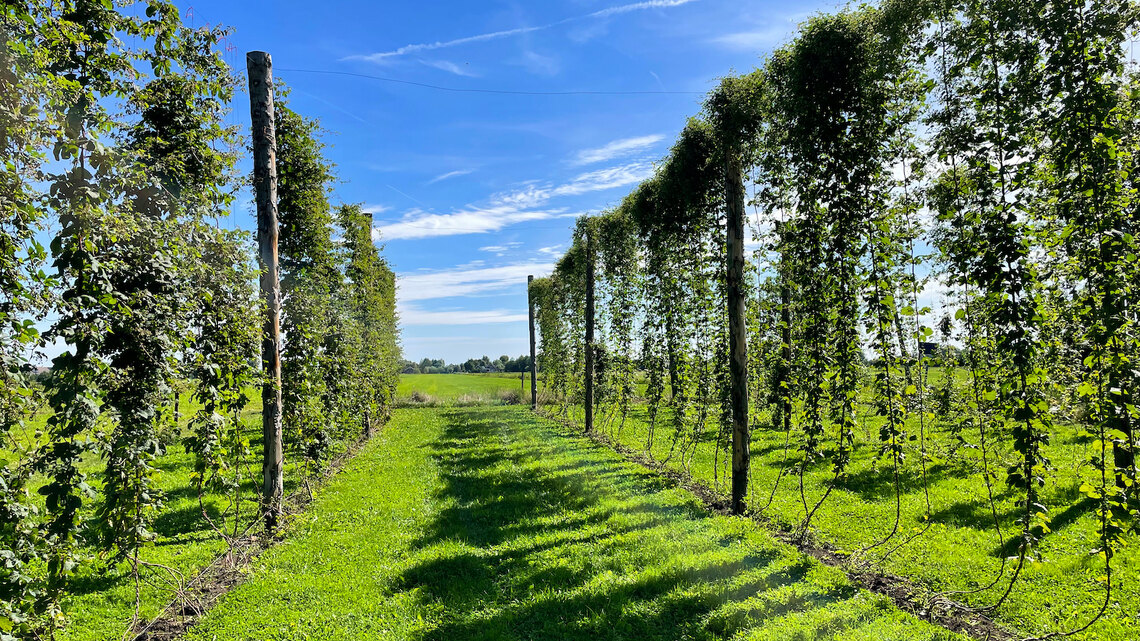In September farmers harvest their hops, and then dry them use in beer. It’s an annual highlight on the beer calendar and has such an importance that many hop growing regions in the world have festivals celebrating it. Of the four main ingredients of beer it is maybe the most fascinating one and definitely one that got a huge boost with the ever growing importance of IPA’s.
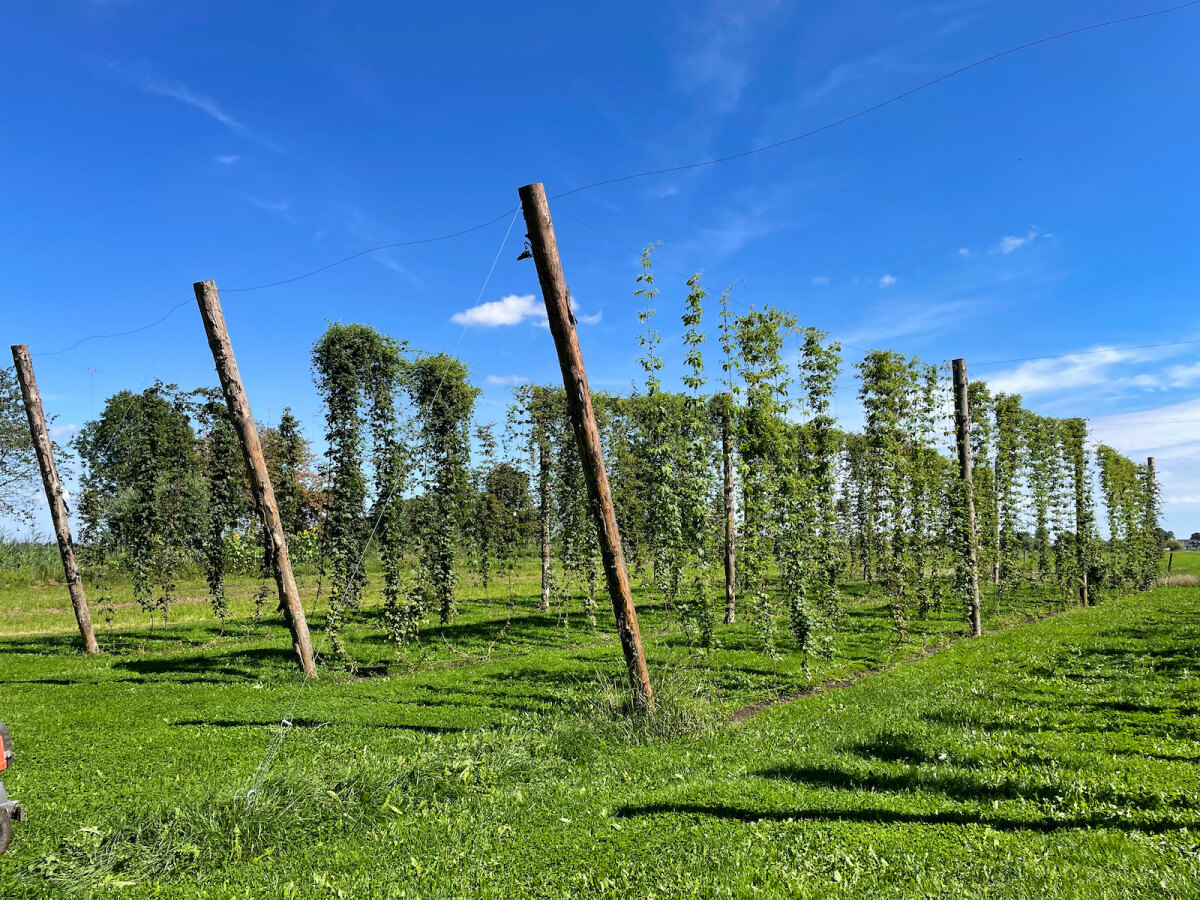
Growing hops in the Netherlands
The Netherlands are not exactly known as a big producer of hops. We tend to get our hops from neighboring countries or from West Coast USA or even further from Australia and New Zealand. Yet there are some exceptions in this country. The northern the province of Drenthe for example has had fields that have been around for centuries. Deep in the South of Limburg Gulpener has their own remarkable fields of hops that they use in their own beer. And like Gulpener more breweries have their own hopfields and even though the yield is low it is as local as can get.
Apart from breweries and their own fields there are a few people who decided to grow their own hops. And one of these happens to be really close to where I live. So we jumped on our bikes on a hot summer afternoon and biked to Kamerik, a village just to the north of Woerden. Here Aron Nap runs De Hopperij. He showed us his small yet interesting piece of land where he grows 5 different kinds of hops.
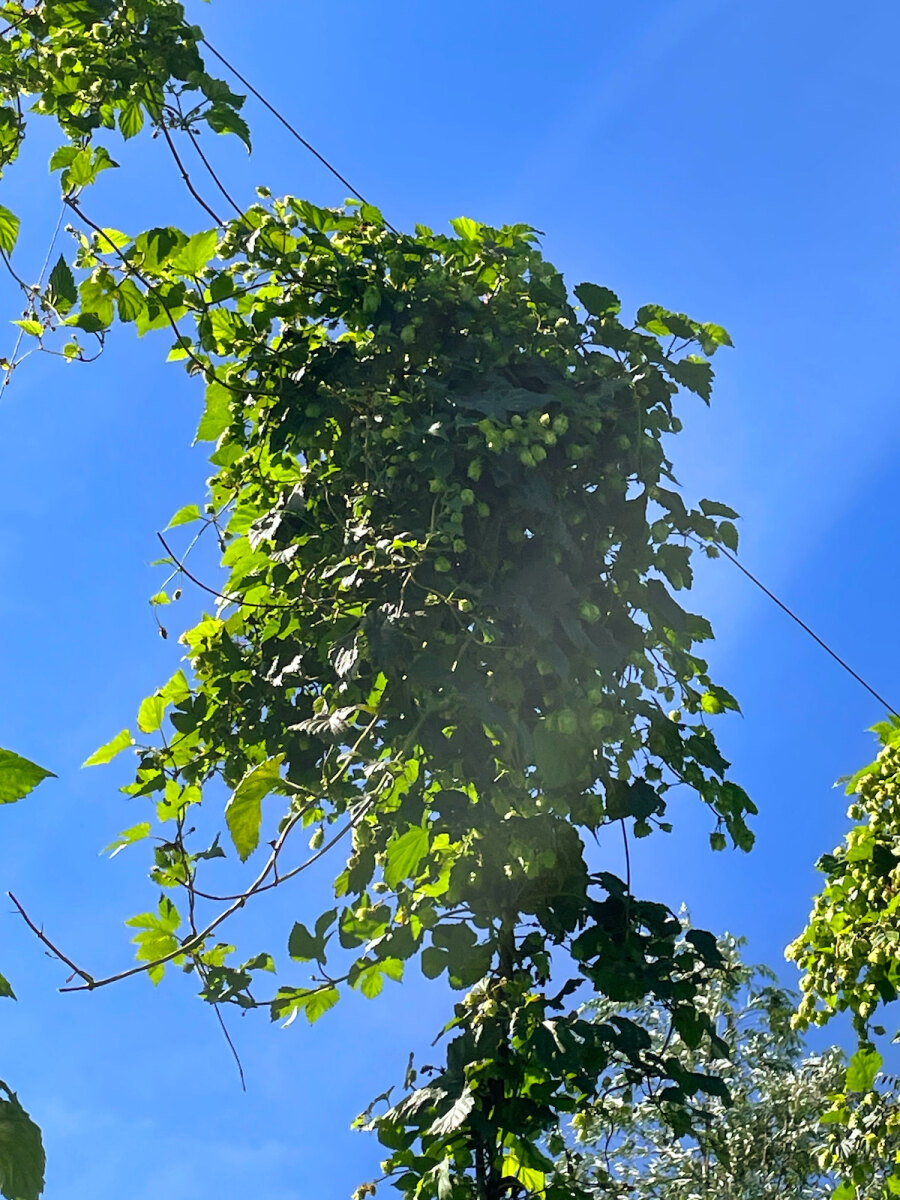
Hop varieties
Because he grows different varieties you can also see how they grow. Some grow more conical, while others start small at the bottom near the ground and are huge once they reached the top. Something that I had only seen in books but here you can see it in person row by row. The varieties Aron grows are Saaz, Target, Hallertauer Mittelfrüh & Tradition and Cascade. A good mix of old and new world hops. It is such a great sight that he even got married there and the beautiful sunny day we visited it was easy to see why.
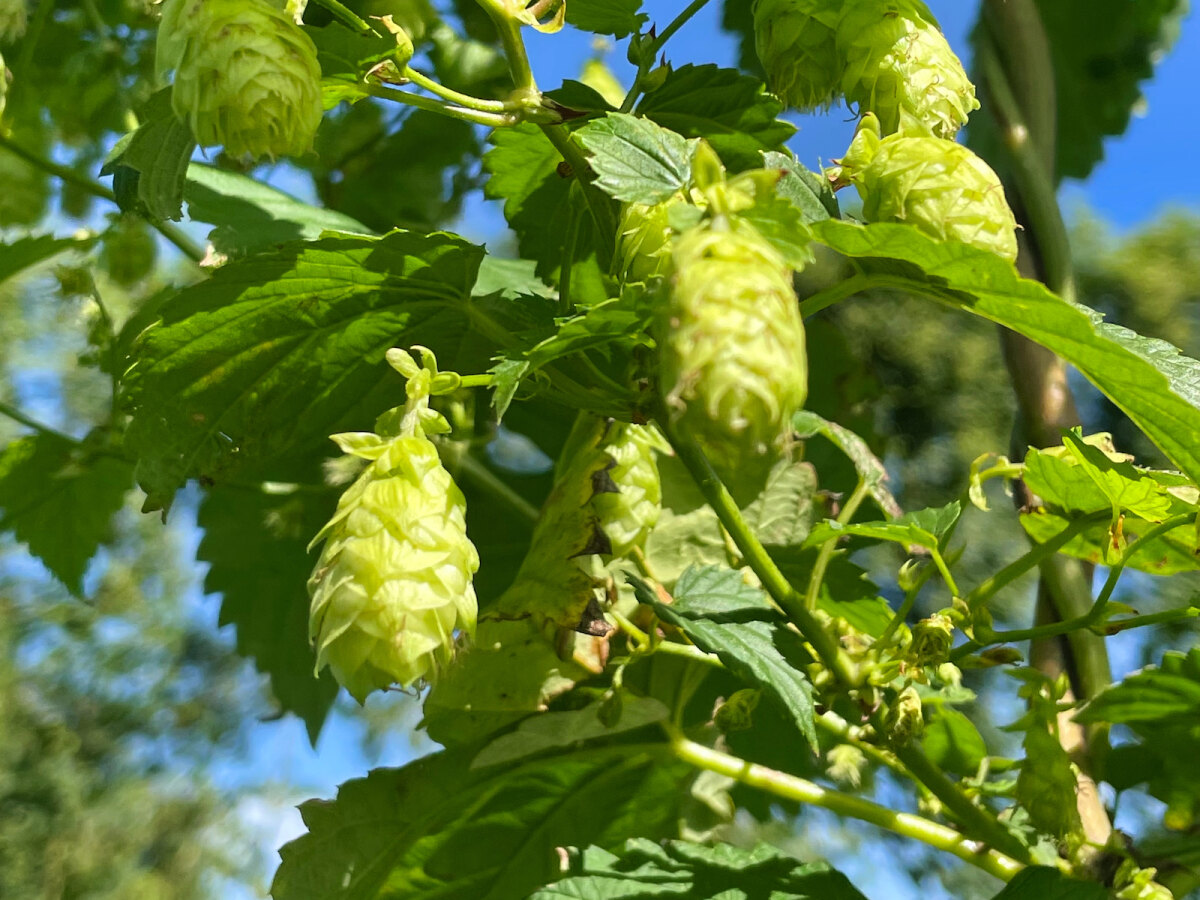
Hop terroir
This is the second year Aron has grown hops and the main question is how the soil will react. Hops tend to grow better in sand but the soil here is mostly peaty with a high acidity. The land around here is best for dairy animals like cows and not for growing crops. Cows are hard to miss around here. It is no wonder that nearby cities like Woerden and Gouda are known for their cheese making. It has to be seen how well hops will grow on this soil but so far it looks good.
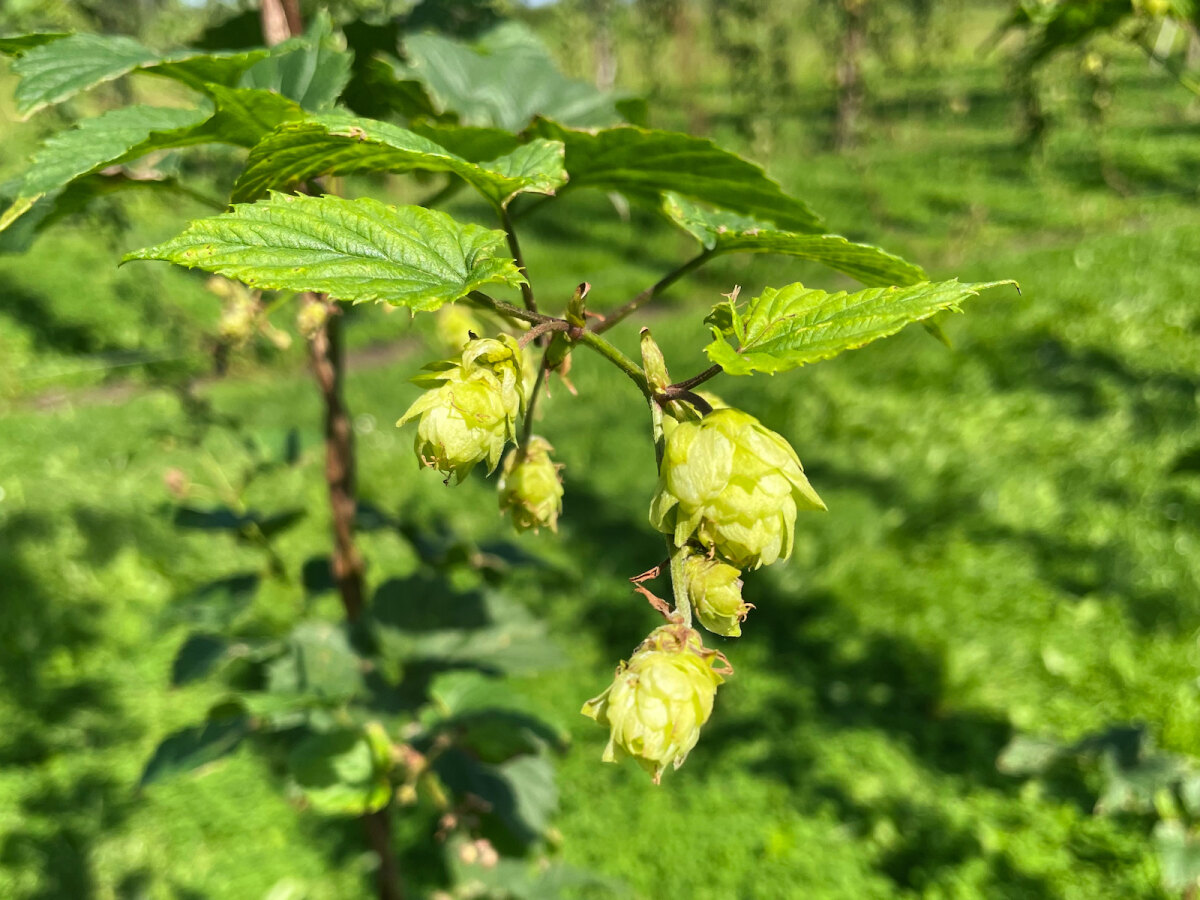
If it keeps on going well there is room for expansion. The land Aron uses is owned by his farmer father. When you arrive at the right road you can actually see the hop field about 500 meters away. A strange sight in a countryside mostly known for green pastures filled with cows. He learned about hop growing mostly by watching tutorial videos on YouTube. You have to start somewhere right? But other hop growers in the country help out as well. Like craft beer this is also a community of likeminded people like BrabantHop for example or the Hollands Hophuis.
Harvesting hops
Cutting is done by hand or with a machine. First the strand that connects it to the ground is severed and then the connections to the lines are. The first time this was all done by hand. Laid on tables and then picked by hand. After that he called in some help and it was done with machines. This saves a lot of time. It is then dried. He even fabricated his own heater where the drying can be done.
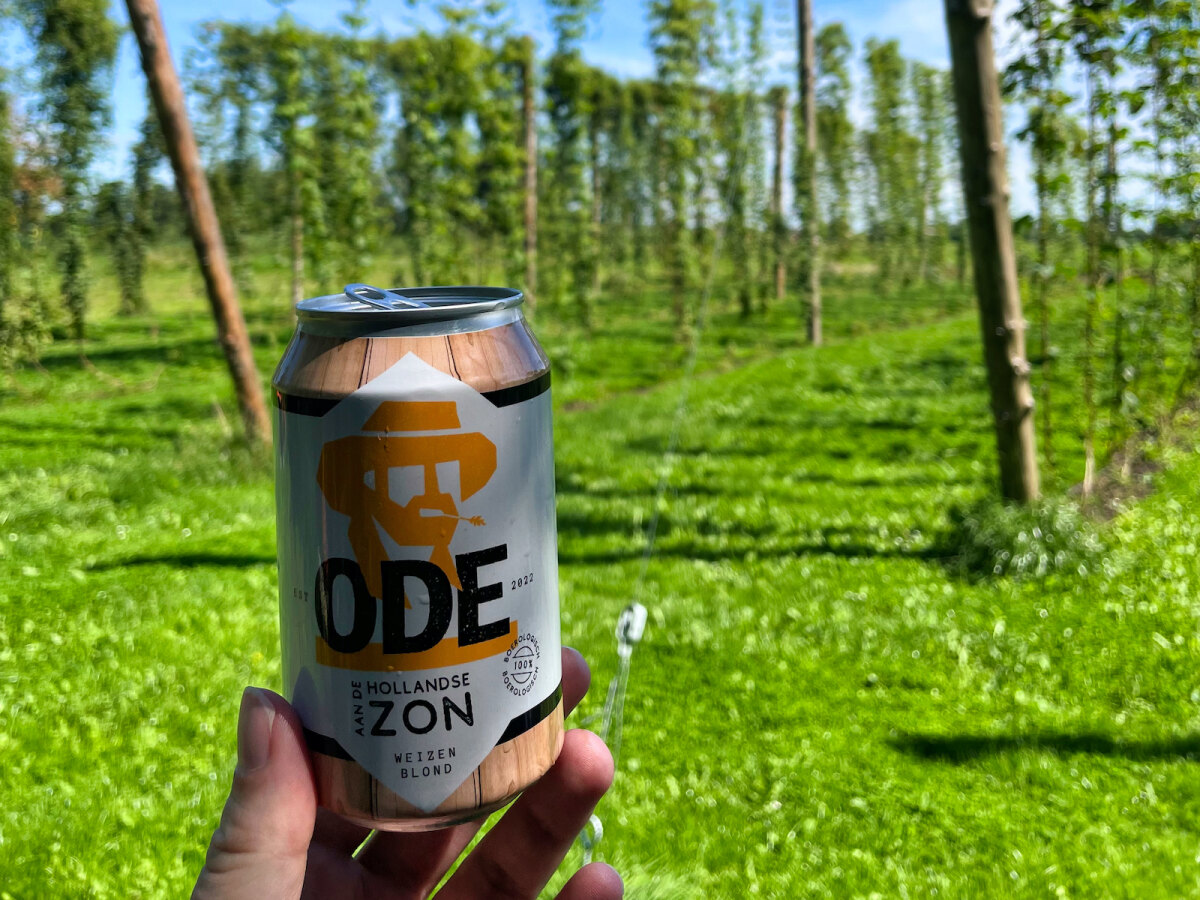
Ode Bier
Some of the hops are used in his own beer called Ode, and ode to brewer and farmer. The first beer is definitely an above average beer that let the hops shine. Helped too by Brouwerij Homeland in Amsterdam where it was brewed and canned. Not all the hops are used in Ode, other breweries can use it as well and they have. Breweries that used his hops include Brouwerij Maximus, Stadsbrouwerij Maastricht and Brouwerij Borrelnoot.
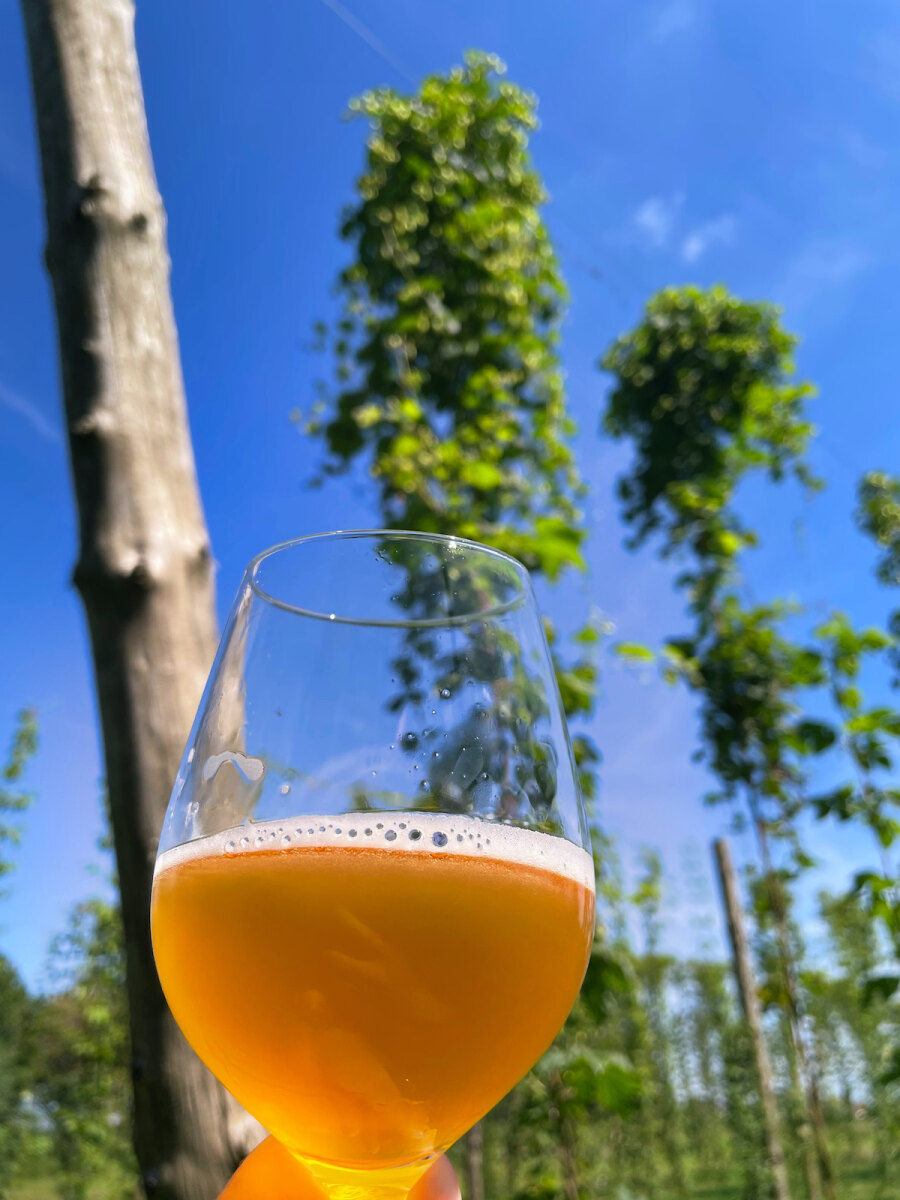
It will be interesting to see what the yield will be next fall but we can only applaud these types of ventures. And while you wait, grab some cans of the wonderful Ode Bier, available in local stores in a.o. Utrecht (Buurtbier) and Woerden (Bierloods22).
Author: Martijn Buisman | Picture credits: Martijn Buisman
